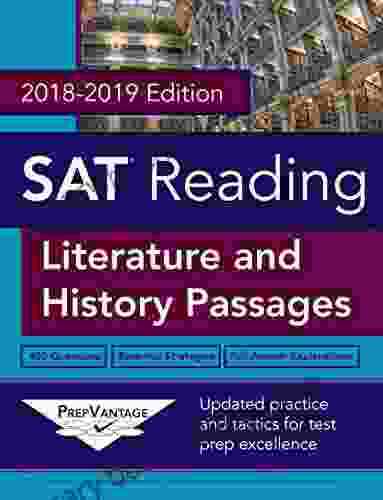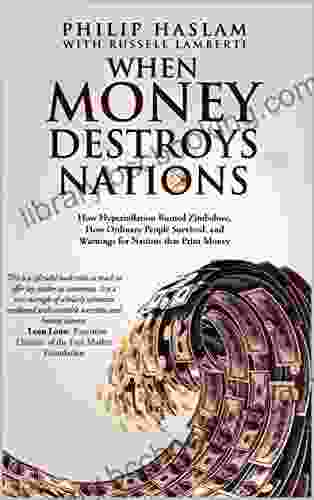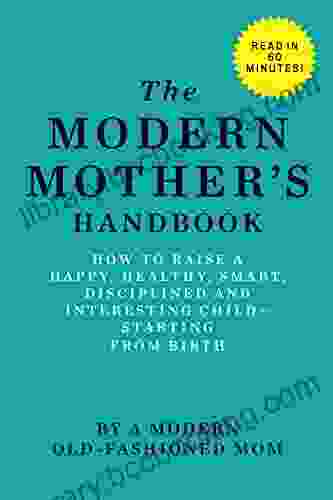Hyperinflation: The Zimbabwean Nightmare and Lessons for the World

In the annals of economic history, the hyperinflation that ravaged Zimbabwe from 2000 to 2008 stands as a chilling reminder of the catastrophic consequences that can arise from unchecked monetary policy and political mismanagement. With inflation rates reaching astronomical levels of over 230 million percent per year, the Zimbabwean economy collapsed, plunging millions of people into poverty and despair.
In this comprehensive article, we will delve into the causes and consequences of the Zimbabwean hyperinflation, examining the government's disastrous economic policies, the devastating impact on the population, and the remarkable survival strategies employed by ordinary Zimbabweans. We will also explore the lessons that can be learned from this economic nightmare, offering insights for policymakers, economists, and individuals alike.
4.7 out of 5
| Language | : | English |
| File size | : | 3396 KB |
| Text-to-Speech | : | Enabled |
| Screen Reader | : | Supported |
| Enhanced typesetting | : | Enabled |
| Word Wise | : | Enabled |
| Print length | : | 225 pages |
| Lending | : | Enabled |
Causes of the Hyperinflation
The roots of Zimbabwe's hyperinflation can be traced to a combination of factors, including:
- Expansionary Monetary Policy: Under the leadership of President Robert Mugabe, the government engaged in reckless printing of money to finance its unsustainable spending. This excessive monetary expansion led to a rapid depreciation of the Zimbabwean dollar, fueling a vicious cycle of inflation.
- Fiscal Irresponsibility: The government's profligate spending was driven by a combination of factors, including: widespread corruption, subsidies to state-owned enterprises, and military expenditures.
- Economic Mismanagement: The government's disastrous economic policies, such as land reform and price controls, led to a decline in production and a disruption of supply chains.
Consequences of the Hyperinflation
The consequences of the hyperinflation were devastating for the Zimbabwean people, leading to:
- Erosion of Savings: The hyperinflation wiped out savings and pensions, leaving many people destitute.
- Poverty and Destitution: The collapse of the economy led to widespread unemployment and poverty, as prices skyrocketed and people struggled to afford basic necessities.
- Social Unrest: The economic crisis triggered widespread social unrest and protests, as people grew increasingly desperate.
- Health Crisis: The hyperinflation made it difficult to access healthcare, leading to an increase in preventable diseases and deaths.
Survival Strategies
Despite the extreme challenges, ordinary Zimbabweans displayed remarkable resilience and employed a variety of survival strategies to cope with the hyperinflation:
- Bartering and Trade: With the Zimbabwean dollar becoming worthless, people resorted to bartering and trading goods and services.
- Informal Economy: The informal economy flourished as people sought alternative sources of income outside the collapsing formal sector.
- Cross-BFree Download Trade: Zimbabweans engaged in cross-bFree Download trade, particularly with neighboring South Africa, to access essential goods and services.
- Remittances: Zimbabweans living abroad sent remittances to their families back home, providing a vital lifeline during the crisis.
Lessons for the World
The Zimbabwean hyperinflation offers valuable lessons for policymakers and individuals around the world:
- Importance of Fiscal Discipline: Governments must exercise fiscal discipline and avoid excessive spending and borrowing to prevent inflation.
- Prudent Monetary Policy: Central banks must maintain prudent monetary policies and avoid excessive printing of money.
- Economic Stability: Stable economic policies are essential for economic growth and well-being.
- Resilience and Ingenuity: Individuals and communities can display remarkable resilience and ingenuity in the face of economic adversity.
The hyperinflation that ravaged Zimbabwe from 2000 to 2008 stands as a stark reminder of the devastating consequences that can arise from unchecked monetary policy and economic mismanagement. The crisis caused untold suffering for the Zimbabwean people, wiping out savings, plunging millions into poverty, and triggering social unrest. Yet, amidst the despair, ordinary Zimbabweans displayed remarkable resilience and employed ingenious survival strategies.
The lessons learned from the Zimbabwean hyperinflation are invaluable for policymakers, economists, and individuals alike. They underscore the importance of fiscal discipline, prudent monetary policy, economic stability, and the resilience of the human spirit. By heeding these lessons, we can help prevent similar economic nightmares from occurring in the future and ensure a more stable and prosperous world for all.
4.7 out of 5
| Language | : | English |
| File size | : | 3396 KB |
| Text-to-Speech | : | Enabled |
| Screen Reader | : | Supported |
| Enhanced typesetting | : | Enabled |
| Word Wise | : | Enabled |
| Print length | : | 225 pages |
| Lending | : | Enabled |
Do you want to contribute by writing guest posts on this blog?
Please contact us and send us a resume of previous articles that you have written.
 Book
Book Novel
Novel Page
Page Chapter
Chapter Text
Text Story
Story Genre
Genre Reader
Reader Library
Library Paperback
Paperback E-book
E-book Magazine
Magazine Newspaper
Newspaper Paragraph
Paragraph Sentence
Sentence Bookmark
Bookmark Shelf
Shelf Glossary
Glossary Bibliography
Bibliography Foreword
Foreword Preface
Preface Synopsis
Synopsis Annotation
Annotation Footnote
Footnote Manuscript
Manuscript Scroll
Scroll Codex
Codex Tome
Tome Bestseller
Bestseller Classics
Classics Library card
Library card Narrative
Narrative Biography
Biography Autobiography
Autobiography Memoir
Memoir Reference
Reference Encyclopedia
Encyclopedia Walter Farley
Walter Farley Woody Guthrie
Woody Guthrie Winifred Brown
Winifred Brown Travis Mays
Travis Mays Maxine Attong
Maxine Attong Richard Ayoade
Richard Ayoade Paul Carter
Paul Carter Robert Appel
Robert Appel Thomas Mayor
Thomas Mayor Natasha Wing
Natasha Wing Marianna Leivaditaki
Marianna Leivaditaki Nelson Mandela
Nelson Mandela Vangeline
Vangeline Patricia Gavin
Patricia Gavin Mary Douglas
Mary Douglas Marta Alexander
Marta Alexander Michael Banton
Michael Banton Melissa Rivers
Melissa Rivers Waka T Brown
Waka T Brown Tim Schurrer
Tim Schurrer
Light bulbAdvertise smarter! Our strategic ad space ensures maximum exposure. Reserve your spot today!

 Clayton HayesMaster Critical Reading for the SAT with "SAT Reading Literature and History...
Clayton HayesMaster Critical Reading for the SAT with "SAT Reading Literature and History...
 Gerald ParkerProven Strategies, Tips and Tricks to Achieve Your Target Band Score in IELTS
Gerald ParkerProven Strategies, Tips and Tricks to Achieve Your Target Band Score in IELTS Scott ParkerFollow ·16.7k
Scott ParkerFollow ·16.7k Chase SimmonsFollow ·10k
Chase SimmonsFollow ·10k Aubrey BlairFollow ·7.9k
Aubrey BlairFollow ·7.9k VoltaireFollow ·14.4k
VoltaireFollow ·14.4k Peter CarterFollow ·13k
Peter CarterFollow ·13k Martin CoxFollow ·4.6k
Martin CoxFollow ·4.6k John Dos PassosFollow ·13k
John Dos PassosFollow ·13k Charles BukowskiFollow ·19.5k
Charles BukowskiFollow ·19.5k

 Brian Bell
Brian BellExploring The Natural World Through Mindful Expressive...
Unleash the...

 David Baldacci
David BaldacciJourney into the Enigmatic World of "Grass" by Sheri S....
Prepare to be captivated by "Grass," a...

 Dashawn Hayes
Dashawn HayesBusting Myths About Human Nature: Unraveling the Complex...
Challenging the...

 Ernest Hemingway
Ernest HemingwayNotes on Suicide: A Profound Exploration of the...
Suicide, a taboo subject shrouded in...
4.7 out of 5
| Language | : | English |
| File size | : | 3396 KB |
| Text-to-Speech | : | Enabled |
| Screen Reader | : | Supported |
| Enhanced typesetting | : | Enabled |
| Word Wise | : | Enabled |
| Print length | : | 225 pages |
| Lending | : | Enabled |












